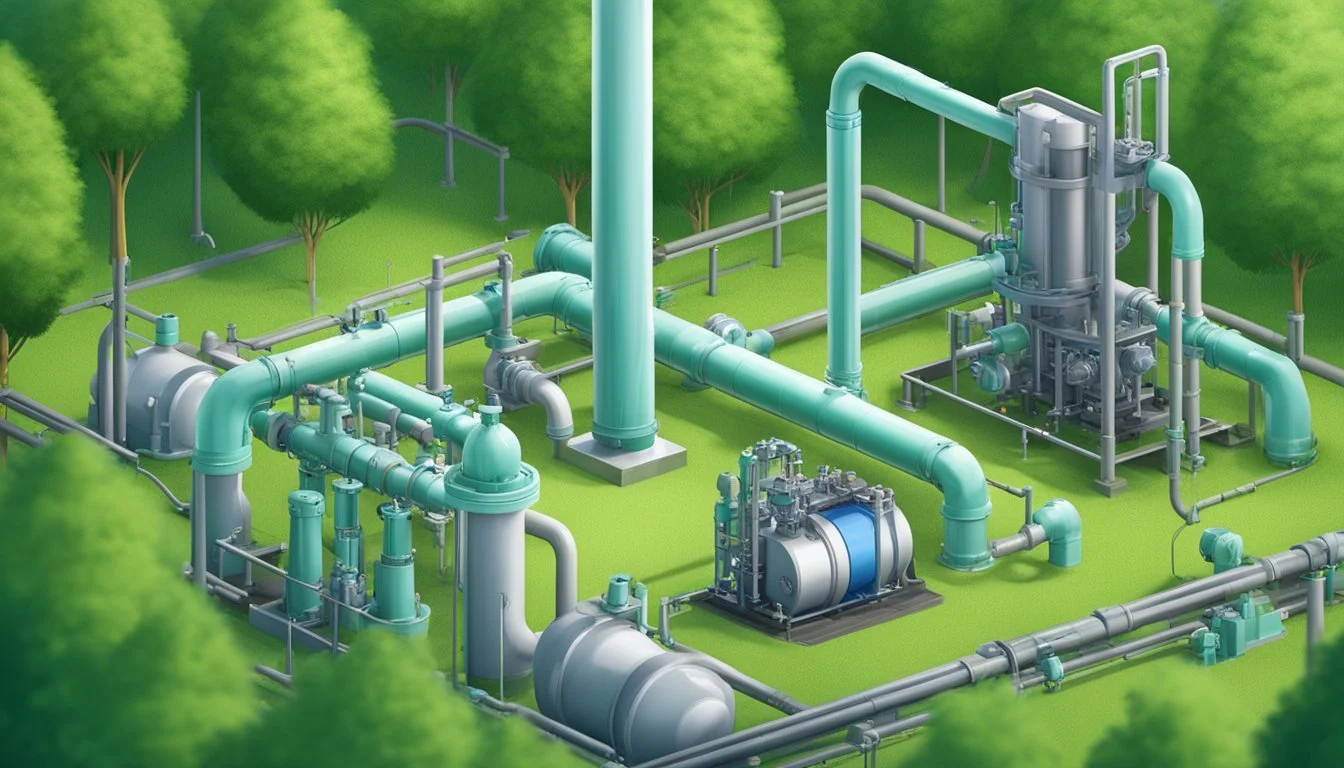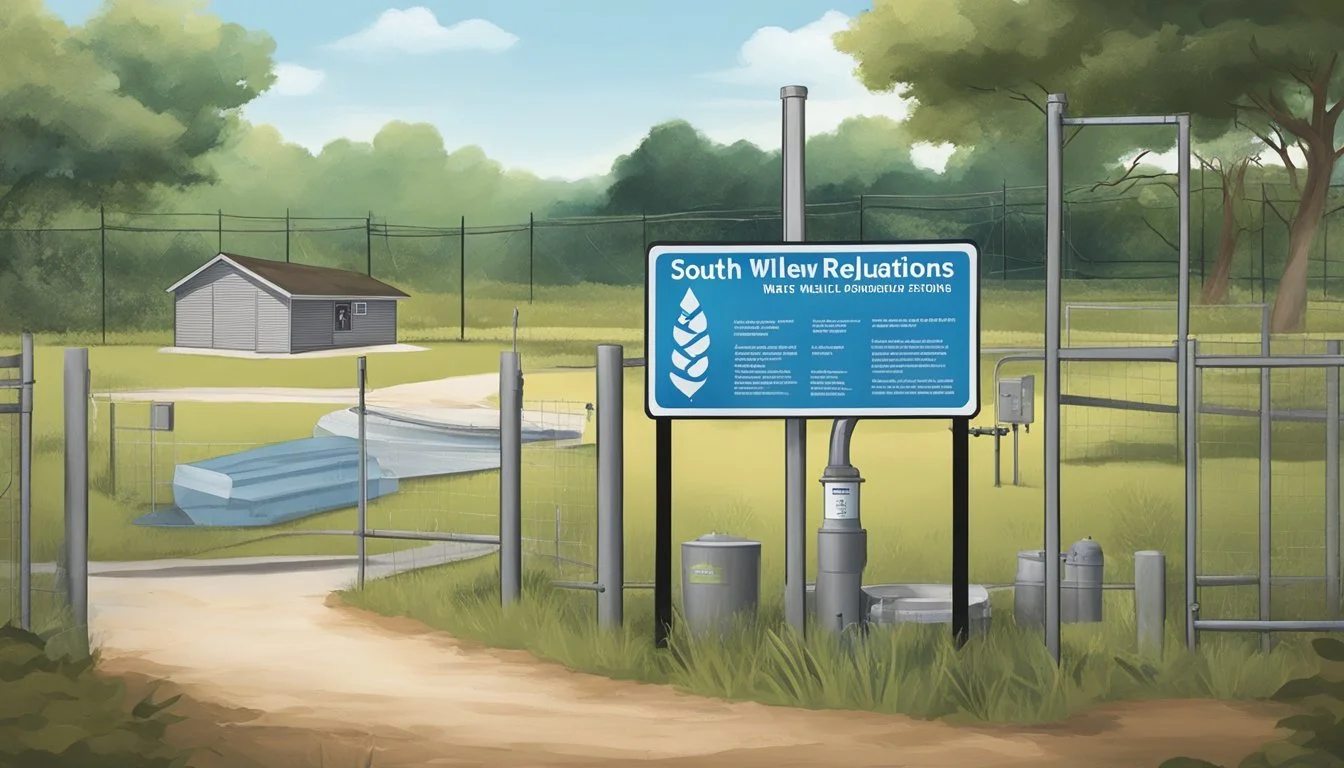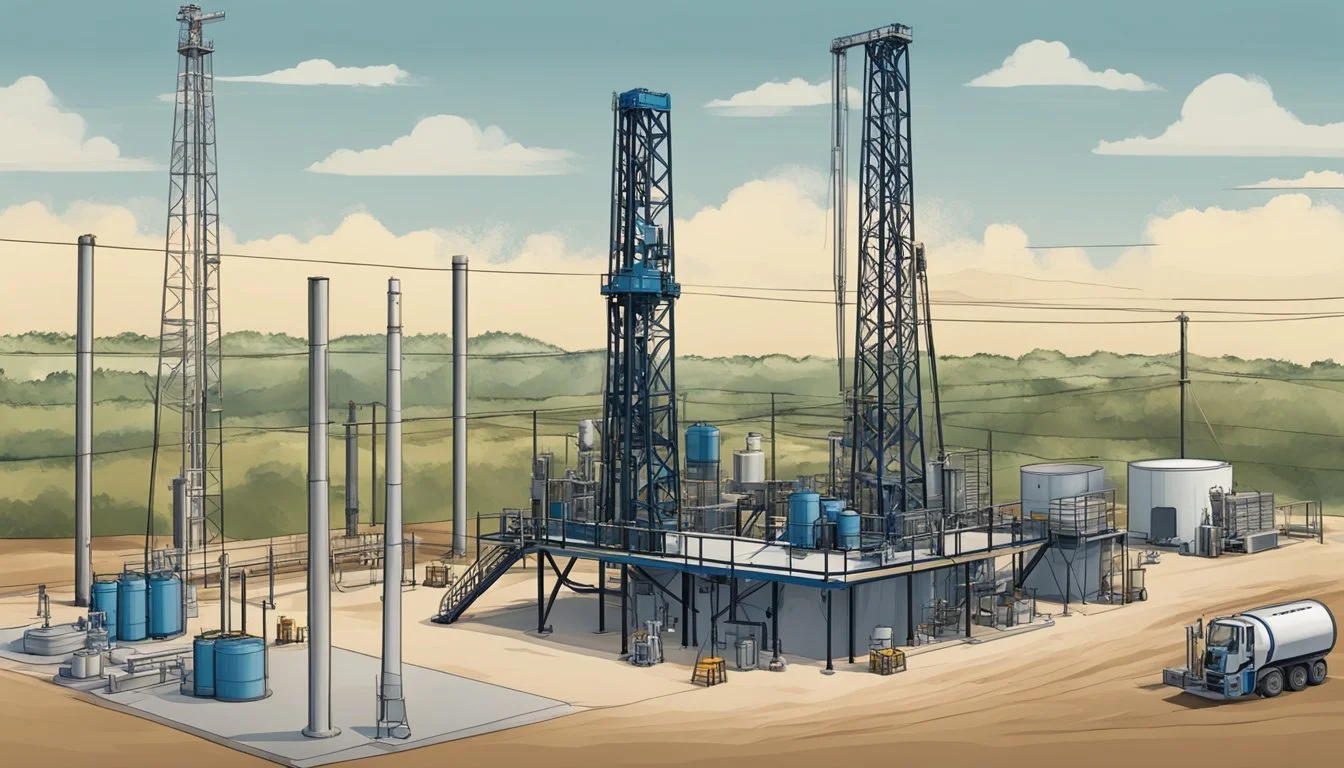South Carolina Water Well Regulations
Understanding Compliance for Property Owners
South Carolina takes the protection of its groundwater resources and public health seriously, which is reflected in the comprehensive water well regulations the state has implemented. These regulations are designed to set standards for the construction, maintenance, and operation of water wells. The aim is to prevent contamination of underground water sources and to ensure that the water supply remains safe for public consumption.
The South Carolina Department of Health and Environmental Control (SCDHEC) outlines specific regulatory standards under titles such as R.61-71 Well Standards, covering a range of well types including residential, irrigation, and monitoring wells. These regulations encompass everything from the permitting process to the technical aspects of well construction, maintenance, and abandonment, providing a structured approach to water resource management.
Understanding and adhering to these well standards is crucial for anyone involved in groundwater extraction in the state. Compliance ensures that individuals and companies operating wells do so in a manner that safeguards the quality of groundwater, thereby protecting the environment and the health of South Carolina’s residents.
South Carolina Water Well Legislation Overview
South Carolina has established specific regulations to govern the management and use of groundwater resources. These rules ensure safe drinking water, protect the environment, and manage water resources sustainably.
Groundwater Use and Reporting Act
South Carolina's Groundwater Use and Reporting Act (R.61-113) mandates the monitoring of groundwater usage, particularly for water wells that produce more than 3 million gallons in any given month. The act requires well operators to adhere to reporting standards, providing data on water withdrawal to the appropriate state agency. Compliance with this act ensures that groundwater resources are used judiciously and helps in preventing over-extraction.
Relevant State Codes
To further regulate groundwater use, South Carolina has introduced several significant codes:
R.61-44 focuses on Water Classifications and Standards, where it sets forth the criteria to maintain the quality of the state’s waters.
R.61-58 deals with Public Water Systems, ensuring that systems supplying water to the public meet the requisite health and safety standards.
R.61-87, the Underground Injection Control Regulations, governs the construction and operation of injection wells, which are used for the disposal of fluids underground.
These regulations collectively aim to protect South Carolina’s water resources, ensuring that wells are constructed, maintained, and abandoned in a manner that safeguards public health and preserves the environment. They are enforced by the South Carolina Department of Health and Environmental Control (SCDHEC), which provides technical support, permitting guidance, and oversight of water quality testing services.
Well Construction and Standards
South Carolina enforces well-defined regulations designed to maintain the integrity of water wells. Standards are in place to guide well construction, minimizing risks to both public health and groundwater quality.
Well Owner Responsibilities
Well owners in South Carolina are expected to comply with Regulation 61-71, which encompasses the construction, maintenance, and operation of individual residential and irrigation wells. Owners must ensure their wells do not threaten underground drinking water sources.
Permitting Requirements
Before the construction of a new well, property owners must obtain a proper permit. This permit confirms their adherence to well construction standards and avoids any unauthorized practices that could contaminate groundwater.
Approved Construction Methods
The state specifies approved construction methods for well drilling, casing, and capping. These methods aim to prevent any potential pollutants from compromising the water supply. It is imperative that licensed professionals carry out all construction in accordance with the recommended practices.
Material and Equipment Standards
All materials and equipment used in well construction must meet specific safety standards. These regulations encompass everything from the casing materials to the sealing compounds, ensuring a safe supply of water and the longevity of the well's infrastructure.
For detailed regulations on South Carolina well standards, refer to the state's Well Standards document.
Well Maintenance and Operation
Proper well maintenance and operation are crucial to ensuring that well water remains potable and safe for consumption, thereby protecting public health. These measures are essential not just for individual wells but for the wider community.
Routine Maintenance
Regular Inspection: Periodic checks should be made for any signs of damage or contamination. This includes inspecting the physical integrity of the well, the well cap, and the casing. It is recommended that wells be inspected annually by a qualified professional to detect potential issues early.
Cleaning and Disinfection: Wells should be cleaned and disinfected to prevent bacterial growth and the buildup of debris that can affect water quality. The South Carolina Department of Health and Environmental Control provides guidelines on maintenance procedures and the proper use of disinfectants.
Operational Guidelines
Water Testing: Conduct routine water quality tests to ensure that the well water meets safety standards for potable water. Testing for bacteria, nitrates, and other contaminants should align with state regulations to ensure public health. Information on the recommended testing frequency can be found within the well standards documentation.
Proper Use: Operational guidelines include using the well only as intended and avoiding the disposal of chemicals or waste in or near the well. These practices help prevent contamination of the groundwater. It's crucial to adhere to the guidelines set forth by the relevant authorities to maintain a safe and functional water supply.
Well Water Quality and Protection
Maintaining the quality of well water and protecting it from contamination is essential for safeguarding public health, particularly for those relying on private wells. In South Carolina, regulations are in place to ensure that underground sources of drinking water remain safe and free of pollutants.
Contamination Prevention
It's vital for well owners to take proactive measures to prevent the introduction of contaminants into their water supply. Private well water can be susceptible to a variety of contaminants, such as pesticides, nitrates, and bacteria, which can infiltrate from both natural and human-made sources. The South Carolina Department of Health and Environmental Control provides a detailed framework in Regulation 61-71 Well Standards for the construction and maintenance of wells, aiming to eliminate potential sources of contamination.
Key Strategies for Contamination Prevention:
Proper Well Location and Construction: Wells must be located away from potential contamination sources and constructed to specifications that protect against pollutants.
Regular Well Maintenance: Periodic inspections and maintenance are critical for identifying and remedying potential issues that could lead to contamination.
Water Testing and PH Levels
Regular testing of well water is imperative to monitor water quality and ensure the safety of the water supply. For well owners in South Carolina, understanding the pH level of their well water is particularly important, as it can affect the potential for contamination and the efficacy of disinfection.
Important Aspects of Water Testing:
Baseline Testing: Initial testing establishes the quality of the water and helps in detecting future changes.
Ongoing Monitoring: Regular testing should be conducted to monitor for changes in pH and the presence of contaminants.
Understanding PH Levels:
Optimal Range: The pH of well water should ideally be between 6.5 and 8.5 to minimize corrosion and scaling issues.
Impact on Health: Extreme pH levels can lead to health concerns and affect the ability of treatments to remove other contaminants.
Homeowners and users of private wells should have their water tested periodically as recommended by local health departments. For those drawing more than 3 million gallons per month from wells, regulations such as Groundwater Use and Reporting apply, underscoring the link between water usage, quality, and public health.
Groundwater and Environmental Concerns
Groundwater quality and quantity in South Carolina are of paramount importance due to their direct impact on the ecosystem's health and the provision of clean water for consumption and use. Responsible management ensures the sustainable use of these water resources while mitigating environmental risks.
Impact on Aquifers and Surface Water
In South Carolina, the interconnection between aquifers and surface water systems plays a crucial role in overall water resource management. Excessive withdrawal of groundwater can lead to the depletion of aquifers, which, in turn, may cause a decline in surface water levels in connected rivers, lakes, and streams. Such a synergistic relationship necessitates diligent regulatory oversight to prevent adverse outcomes such as land subsidence and reduced water availability. Sources like the Groundwater Protection Program | SCDHEC emphasize that maintaining the balance and quality of both groundwater and surface water is essential to meet the state's environmental and public health standards.
Relation to Oil and Gas Exploration
The search for and extraction of oil and gas resources carries potential risks to South Carolina's groundwater resources. Regulations such as those outlined in PDF Regulation R.121-8, Oil and Gas are in place to manage and minimize the impact of exploration and production wells on groundwater quality. This is particularly significant given that the processes involved in oil and gas operations, such as drilling and hydraulic fracturing, pose risks of contamination to groundwater through chemical spills, leaks, or improper disposal of wastewater. Strict enforcement of these regulations serves not only to protect the state's water resources but also to safeguard the ecosystem and public health from the potential hazards associated with oil and gas extraction activities.
Well Abandonment and Decommissioning
In South Carolina, regulations ensure that the abandonment and decommissioning of wells are conducted with public safety and environmental integrity in mind. The protocols are designed to prevent contamination and adhere to well-established standards.
Proper Abandonment Procedures
The process for proper well abandonment must meet specific criteria outlined under South Carolina's regulations to safeguard against any potential public safety hazards and environmental contamination. According to Regulation 61-71, wells that are no longer in use must be abandoned in a manner that maintains the integrity of the groundwater.
Sealing the Well: Wells should be filled with an approved sealing material. This often includes neat cement or bentonite clay to create a permanent, watertight seal.
Upper Zone Sealing: This is crucial to prevent surface water infiltration which could lead to contamination.
Lower Zone Sealing: Ensures the separation of different aquifers and prevents intermixing of water from various strata.
Removal of Well Equipment: All pumps, piping, and related equipment must be removed to allow for complete sealing.
Documentation and Reporting: A record of the abandonment procedures, along with details such as the depth and diameter of the well, materials used for sealing, and the date of abandonment, must be reported to the South Carolina Department of Health & Environmental Control (SCDHEC).
These steps are mandatory to ensure that the abandoned well does not become a conduit for contaminants to enter the groundwater supply. Additionally, compliance with these regulations aids in maintaining the integrity of the region's water resources and protects public health.
Complex Wells and Special Cases
South Carolina's approach to managing complex wells and special cases is governed by stringent standards to protect groundwater resources. The rules for injection wells and high-capacity production wells are particularly detailed due to their potential impact on the environment.
Injection Wells and Special Permitting
In South Carolina, injection wells, which are utilized for depositing substances into the subsurface, are subject to rigorous permitting requirements overseen by the Department of Health and Environmental Control (DHEC). Specifically, regulation R.61-79 details the mandatory criteria that must be met. This includes evaluation of potential risks to groundwater and the provision of ample documentation to support the need and safety of the injection procedure.
Criteria for Injection Well Approval:
Risk to groundwater assessed.
Comprehensive documentation required.
Compliance with R.61-79.
Permit applicants for these specialized wells must demonstrate that the use will not endanger drinking water sources. DHEC's role goes beyond initial permit approval, extending to regular monitoring to ensure ongoing compliance with environmental standards.
High-Capacity Production Wells
High-capacity production wells, which provide significant water volumes for agricultural or industrial operations, are also governed by DHEC, with an additional layer of regulation found in R.121-8. These wells are often critical to economic activities but present a challenge in balancing resource extraction with conservation.
Key Regulations for High-Capacity Wells:
Permitting aligns with R.121-8.
Potential environmental impact rigorously reviewed.
Prospective developers of these wells must secure permits that consider both the quantity of water being drawn and its effect on the surrounding hydrological landscape. DHEC takes into account the sustainability of the water source, the proposed use of the water, and potential impacts on neighboring water rights.
By adhering to these comprehensive standards, South Carolina aims to ensure the critical balance between vital water usage for development and the protection of its precious water resources.
Reporting and Enforcement
The South Carolina Department of Health and Environmental Control (DHEC) manages the compliance and enforcement of the state's water well regulations. These regulations are crucial for monitoring water quality and safeguarding public health.
DHEC Reporting Requirements
DHEC requires water system operators to submit reports that include specifics on water well operations and any monitoring data. The type and frequency of reporting vary depending on the system's classification. For example, community systems and non-community systems may be obligated to perform bacteriological sampling and report disinfectant residuals. Detailed information on the scope of required reporting can be found on the Enforcement and Violations - Drinking Water, Well Drilling page of DHEC's website.
Enforcement and Penalties
When requirements outlined by DHEC are not met, enforcement actions may be taken which can include fines and other penalties. The severity of enforcement corresponds with the gravity of the violation and its potential impact on public health and the environment. Regulations governing additional requirements for wells and potential penalties are comprehensively articulated in R.61-71 Well Standards and related documents. Enforcement ensures adherence to regulations and deters non-compliance, thereby protecting the state's water resources.
Technical Aspects of Well Design
In South Carolina, well design must adhere to strict standards to safeguard drinking water sources and public health. The specifics of well construction involve meticulous planning of boreholes and the implementation of well screens for optimal groundwater extraction.
Borehole Design
The borehole is the initial structure drilled to access groundwater. Its design is crucial for ensuring the structural integrity and preventing contamination of water supplies. In South Carolina, Regulation 61-71 sets the standards for borehole construction, which dictate the diameter, casing, and sealing materials to be used. These regulations help prevent surface contaminants from infiltrating the groundwater during and after the drilling process.
Well Screen and Development
After the borehole is completed, a well screen is installed to filter out sediment and allow clean water to enter the well. The correct design and placement of the screen are paramount to maintaining water quality and extending the lifespan of the well. Well development is the process that follows the screen installation, involving the removal of fine materials from around the screen to enhance water flow. Procedures such as surging, jetting, or airlifting are conducted to ensure the aquifer around the screen is properly developed, leading to a more efficient and productive well.
Frequently Asked Questions
This section addresses common inquiries regarding South Carolina's water well regulations, providing clear answers about construction requirements, permitting processes, and other important details.
What are the requirements for water well construction in South Carolina?
Construction of water wells in South Carolina must comply with specific standards to ensure safety and groundwater quality. These include using proper materials, securing the site, and following the guidelines laid out by the South Carolina Department of Health and Environmental Control (SCDHEC).
How do I obtain a well permit in South Carolina?
To obtain a well permit, one must submit an application through SCDHEC which includes the site plan and intended use. The well must be permitted before construction begins, ensuring it meets state standards for private drinking water wells.
What are the minimum distances required between a well and a septic system in South Carolina?
Regulations require a specific distance to be maintained between a well and a septic system to prevent contamination. Detailed distance requirements can be found on the SCDHEC website under the section for individual residential well and irrigation well permitting.
What are the costs associated with drilling a new well in South Carolina?
The cost to drill a new well can vary based on factors like location, depth, and ground conditions. It's advisable to consult with licensed contractors for accurate estimates. Information regarding well drilling can also be found through resources like the SC Ground Water Association.
How can I access the records of water wells in South Carolina?
Records for water wells can typically be accessed through the South Carolina Department of Natural Resources - Hydrology Section. More information about this process and the available data can be found on their website under the Hydrology Section information.
What is the minimum required water yield for a private well in South Carolina?
The minimum required water yield for private wells in South Carolina ensures that the well can sustain a safe and reliable water supply. This yield varies depending on local regulations and water usage needs. Further details and regulations about water well yields are contained within the guidelines by SCDHEC.









